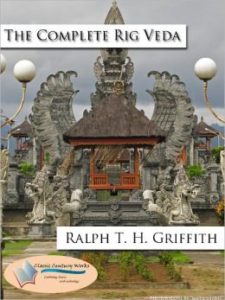I had earlier posted a link to a Guardian Article about Singapore and how it was a model for colonial & post-colonial development.
To my knowledge Singapore & Hong Kong are colonial creations and therefore their success are more anomalous than not.
I would hazard a few drawbacks of colonial rule in South Asia:
(1.) English language as the High Culture: this is a serious problem since the Urdu-Hindi divide only represents the lack of a unified elite standard. If the Brits/Europeans had never established themselves a native literary lingua franca would have eventually emerged as a South Asian unifier. Urdu for instance is the indigenous supplanter, by Hindu courtiers, of the courtly Persian spoken at Mughal courts. Not to mire this thread into another language controversy but my point being is that if South Asia had followed a normal course of development we would be writing Brown Pundits in a desi, not foreign, tongue.
(2) Time Value of Money: South Asia may have been routinely plundered (the Persians invaded a few times in the last few centuries) but most of India’s wealth stayed home. Depraved and decadent the Mughals may have been but their monuments rest on Indian Soil. The wealth of India, through unfair trade & conquest, ultimately flowed back to the Mother Country; powering England’s economic advancement. The British Empire may have been an uneconomic enterprise towards the very end (however it still helped Britain turn the tide in 2 World Wars) but the previous centuries had been enough to solidify Europe/England’s lead.
(3) Racial Inferiority: South Asia is the land of colour, caste & creed but scientific racism wasn’t endemic to it (there is some evidence caste had been dying out prior to the Brits coming but I can’t possible comment). The Brahmins and Muslim elites may not have intermarried with anyone else (though I find that hard to believe) but the racial seclusion that the Brits maintained, especially after Mutiny & in the Victorian Era, embedded a racial inferiority complex into the desi cultural stream that’s never truly been shaken off. Currying favour with the Englishman has always taken precedence over regional solidarity. The reason as to why Native Royals were forbidden from marrying white women was the genuine fear that the royal families of India would become white in a few generations (that’s already happened to a few of South Asia’s political dynasties mind you).
(4) Communal conflict: there may have been a history of uneasy tension between Muslim & Hindu in historic India but divide & rule exacerbated it towards eventual Partition.
(5) Winston Churchill: WC has a demi-god status in Britain but was shameful in his treatment and views of desis. When a man so racist is so revered there isn’t much more to say. Famine in India & Ireland under the British Empire was arguable more of a political rather than agricultural construct.
This isn’t to say that South Asians shouldn’t take agency and own their faults (how else were they conquered but for their own lack of unity) but colonialism (even more so than the Muslim conquests though that is arguably a close second) was an absolute disaster for the Subcontinent. Shashi Tharoor is entirely right; English, railroads and a few universities are no offsets. Just because the British Empire wasn’t as evil as some others (the Belgians in Congo etc) doesn’t mean that it was a just enterprise, not now not ever..
 In the original Sanskrit, the hymns are arranged in stanzas and follow particular rules of rhyme and meter (hear a sample at the end of this review). They are meant to be memorized (with extreme fidelity to the text and its correct pronunciation) and then sung/recited (as they still are), in religious ceremonies and sacrifices to the Gods. In this sense, my use of them as a “window into the heroic age” has little to do with their use and status in Hinduism. But then, I am not a Hindu (unless we are following
In the original Sanskrit, the hymns are arranged in stanzas and follow particular rules of rhyme and meter (hear a sample at the end of this review). They are meant to be memorized (with extreme fidelity to the text and its correct pronunciation) and then sung/recited (as they still are), in religious ceremonies and sacrifices to the Gods. In this sense, my use of them as a “window into the heroic age” has little to do with their use and status in Hinduism. But then, I am not a Hindu (unless we are following